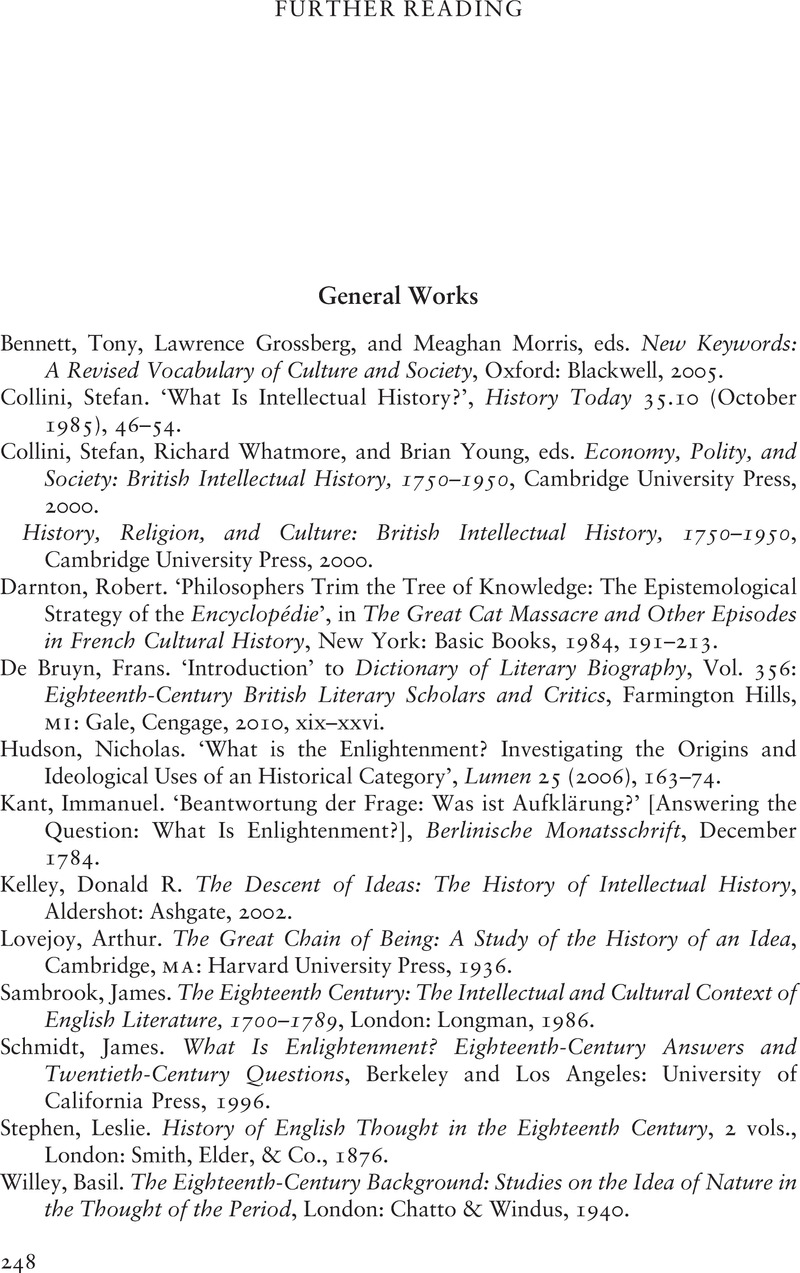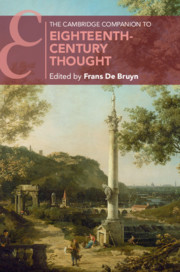Book contents
- The Cambridge Companion to Eighteenth-Century Thought
- Cambridge Companions to Literature
- The Cambridge Companion to Eighteenth-Century Thought
- Copyright page
- Contents
- Illustrations
- Notes on Contributors
- Chronology
- Lexicon of Terms
- Introduction
- 1 Philosophical Thought: Theories of Knowledge and Moral Thought
- 2 Science in the Long Eighteenth Century
- 3 Political and Legal Thought
- 4 Religious Thought: The Defence of Religious Establishment
- 5 Historical Thought
- 6 Wealth and Corruption: Eighteenth-Century Social and Economic Thought in Four Scandals
- 7 Literary and Aesthetic Theory
- 8 Sensibility: Passion, Emotion, Affect
- Further Reading
- Index
- Cambridge Companions To …
- References
Further Reading
Published online by Cambridge University Press: 15 June 2021
- The Cambridge Companion to Eighteenth-Century Thought
- Cambridge Companions to Literature
- The Cambridge Companion to Eighteenth-Century Thought
- Copyright page
- Contents
- Illustrations
- Notes on Contributors
- Chronology
- Lexicon of Terms
- Introduction
- 1 Philosophical Thought: Theories of Knowledge and Moral Thought
- 2 Science in the Long Eighteenth Century
- 3 Political and Legal Thought
- 4 Religious Thought: The Defence of Religious Establishment
- 5 Historical Thought
- 6 Wealth and Corruption: Eighteenth-Century Social and Economic Thought in Four Scandals
- 7 Literary and Aesthetic Theory
- 8 Sensibility: Passion, Emotion, Affect
- Further Reading
- Index
- Cambridge Companions To …
- References
Summary

- Type
- Chapter
- Information
- The Cambridge Companion to Eighteenth-Century Thought , pp. 248 - 261Publisher: Cambridge University PressPrint publication year: 2021

